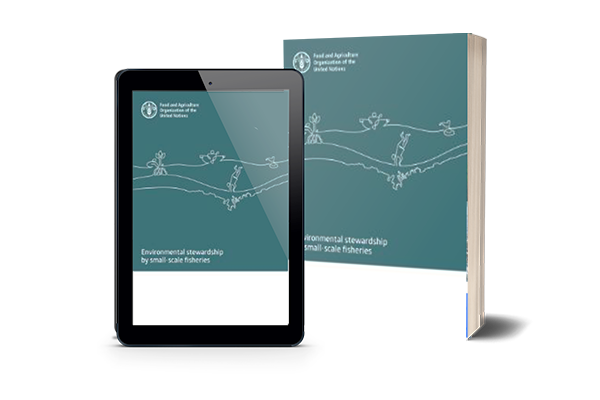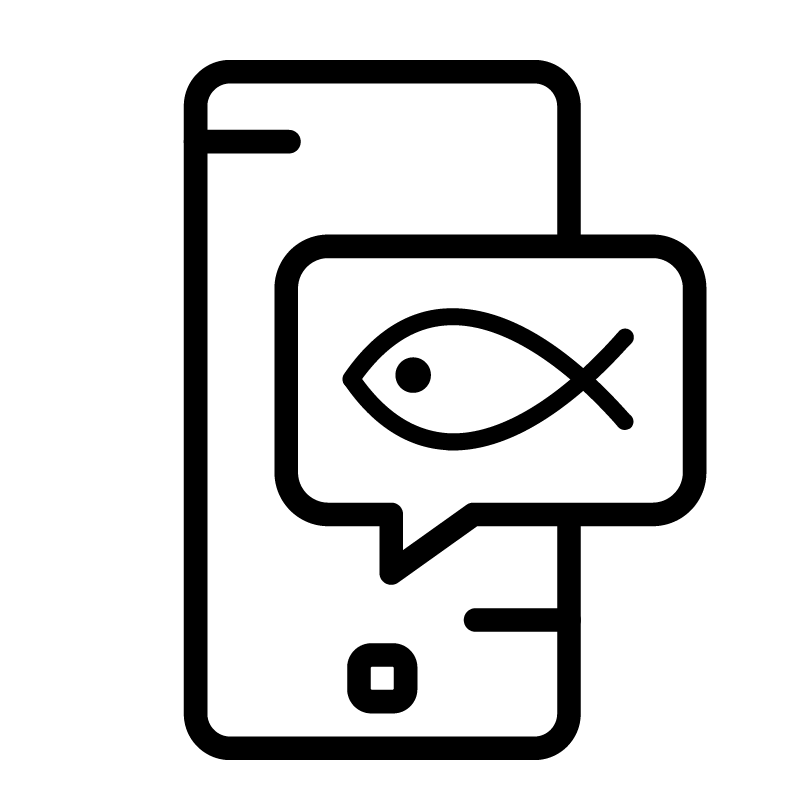Human well-being and ecosystem health
For a fishery to be sustainable, it is important to give attention to ensuring that the stocks of fish fished and the ecosystem they live in are kept healthy and resilient over time. Such efforts will need to take all who depend on fish for food and livelihood into account.
The Ecosystem Approach to Fisheries (EAF) is a holistic approach to managing fisheries, looking at how fisheries affect and interacts with society, economy, culture, and environment. The EAF is based on the idea that human well-being and ecosystem health are linked to one another.
Participatory management
Small-scale fishing communities can play an important role in managing, restoring, conserving and protecting aquatic resources and ecosystems. States and government institutions can empower and support fishing communities to engage in such participatory management – also called co-management – of fisheries resources together with government institutions and other groups.
Co-management is important because it gives voice to the fishers so they can express their needs and claims and contribute valuable knowledge (including traditional knowledge) to the formulation of policies and regulations. It is important in both inland and marine fisheries to make sure that both men and women participate in deciding on management measures affecting their livelihoods, including protected areas. When fishers are involved in making decisions and rules on resource management, these arrangements are likely to be more appropriate, which increases compliance with the rules.
Recommendations in the SSF Guidelines
The SSF Guidelines call for responsible management of fisheries, aquatic ecosystems and biodiversity, and stress that the right to use a resource and the responsibility to manage it responsibly come together (see also the page on tenure rights).
The SSF Guidelines also highlight the need to develop and improve management systems and cooperation in a participatory way. All who have an interest in using the resource have the right to be informed, consulted and included in decision-making processes. Particular attention should be given to include women and vulnerable and marginalized groups.
The SSF Guidelines also provide guidance on the need for sustainable fishing practices that do the least harm to the environment and the fish. States are encouraged to prevent and stop all illegal and destructive fishing practices, avoid overfishing, and put in place systems for monitoring, control and surveillance (MCS). Small-scale fishers are, in turn, encouraged to support and uphold such MCS systems.
Chapter 5B in the SSF Guidelines is about sustainable resource management.
Video on community-based fisheries management
Explore the SSF Guideline Flickr album on Sustainable resource management
Related publications
-
Plan d’Action National pour la mise en œuvre des Directives sur la Petite Pêche Maritime et Continentale à Madagascar (2024-2028) - Available only in French
Nov 12, 2024, 10:22 AM -
Empowering women in fisheries value chains - Good practices and lessons learned from the Coastal Fisheries Initiative
Nov 1, 2024, 11:44 AM -
Co-management of fisheries and mangroves as a pathway to the ecosystem approach to fisheries - Good practices and lessons learned from the Coastal Fisheries Initiative
Nov 1, 2024, 11:41 AM -
Review of the state of the world fishery resources - Inland fisheries | fourth edition
Nov 1, 2024, 10:30 AM -
A comparative analysis of the Global Action Plan of the United Nations Decade of Family Farming 2019–2028 and the SSF Guidelines
Oct 31, 2024, 18:30 PM -
Evaluation of the project "Creating an enabling environment for securing sustainable small-scale fisheries
Sep 11, 2024, 14:15 PM -
Integrating small-scale fisheries in policymaking
Sep 4, 2024, 12:41 PM -
Community fisheries organizations of Cambodia: Sharing processes, results and lessons learned in the context of the implementation of the SSF Guidelines
Aug 27, 2024, 07:00 AM -
Voluntary Guidelines for Securing Sustainable Small-Scale Fisheries in the Context of Food Security and Poverty Eradication
Jun 25, 2024, 10:43 AM -
Technical guidance for the creation and implementation of a national fisher registry in support of fisheries management
Jun 25, 2024, 10:40 AM -
Case study part 3: Zambezi Region
May 20, 2024, 15:50 PM -
Case study part 2: Karas region
May 20, 2024, 15:47 PM -
Case study part 1: Oshana region
May 20, 2024, 15:43 PM -
Guidelines for mainstreaming gender and youth in Small-Scale Fisheries Organizations (SSFO)
May 20, 2024, 15:32 PM -
Mainstreaming small-scale fisheries into climate action for sustainable development in Namibia
May 20, 2024, 15:27 PM -
Namibia socio-economic development considerations to strengthen the small-scale fisheries ecosystem
May 20, 2024, 15:23 PM -
Report of the workshop on “How to leverage the Illuminating Hidden Harvests approach for better small-scale fisheries data", Rome, 14–15 March 2023
May 13, 2024, 09:18 AM -
The importance of small-scale fisheries for food security in Madagascar
May 7, 2024, 09:22 AM -
Importance de la petite pêche en termes de sécurité alimentaire à Madagascar
May 7, 2024, 09:15 AM -
Women's contribution to community livelihoods and nutritional security in the small-scale fisheries sector in Madagascar
May 7, 2024, 09:10 AM
Related news
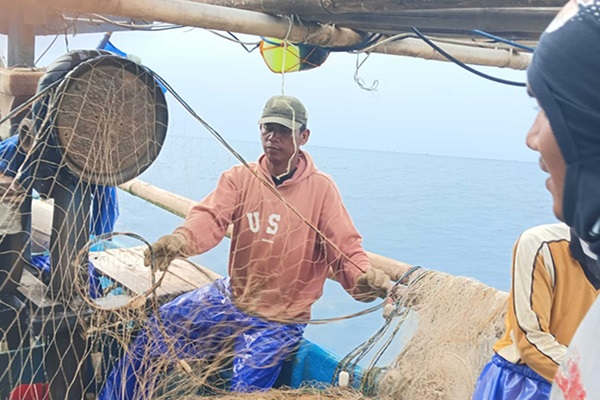
Passing the baton: bolstering young fishers’ roles for sustainable fisheries resources
23/02/2024
A small fisher, Agus Riyadi realized that the waters around Binuangen, West Java has high fisheries potentials and has been an essential source of livelihood for his family and local communities. “We need to protect the fisheries resources here and actively monitor their utilization, especiall...
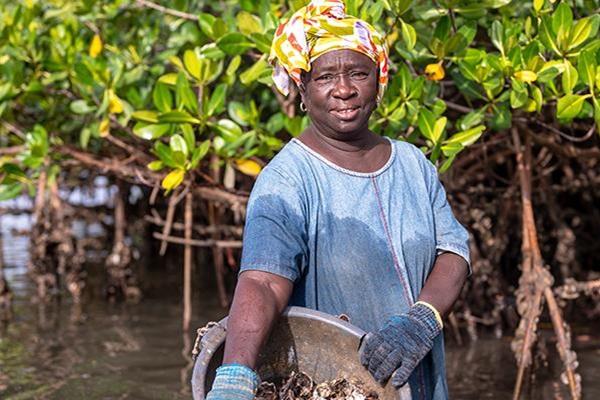
Towards sustainable resource management for small-scale fisheries
23/06/2023
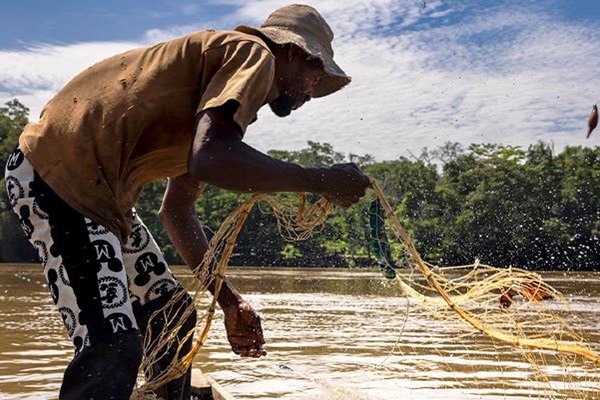
The Fisheries and Aquaculture and Forestry Divisions at FAO join forces to implement a series of activities focused on inland small-scale fisheries
28/09/2022
Get to know the SSF Guidelines
- Responsible governance of tenure
- Social development and decent work
- Value chains, post-harvest and trade
- Gender equity and equality
- Disaster risk and climate change
- A human rights-based approach
- Indigenous peoples and small-scale fisheries
- Food security and nutrition
Contact


